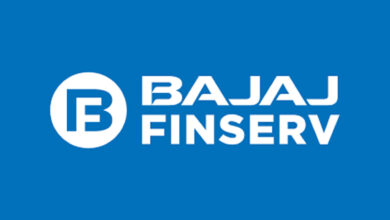Https//github.com/packtpublishing/expert-delphi_second-edition

where trends rise and fall like the ebb and flow of tides, Delphi stands as a lighthouse, guiding developers through the stormy seas of code. Born in the early days of software development, Delphi has not only survived but thrived, becoming a beloved tool for those who seek both power and elegance in their programming endeavors.
This article embarks
The Evolution of Delphi
Delphi’s Roots and Growth
Delphi’s origins trace back to a time when the digital world was just beginning to find its feet. It was birthed by Borland in 1995, with the ambition of simplifying the development of Windows applications. Over the years, Delphi has evolved, absorbing the wisdom of its predecessors while forging new paths of innovation. This evolution has not been a mere collection of updates but a narrative of growth, where each version tells a story of enhanced capabilities and refined user experiences.
Major Milestones in Delphi’s Journey
As we walk through the corridors of Delphi’s
history, several milestones stand out. The introduction of the Visual Component Library (VCL) revolutionized the way developers approached GUI design. Later, the FireMonkey (FMX) framework expanded Delphi’s horizons, enabling cross-platform development that was once the stuff of dreams. Each release has added another verse to Delphi’s song, creating a symphony of features that continue to resonate with developers today.
Expert Delphi: A Beacon for Developers
Unveiling the Second Edition
The second edition of “Expert Delphi” is more than just a book; it’s a compass for those navigating the complexities of modern programming. This edition delves deeper into the nuances of Delphi, offering insights and techniques that transform novices into masters. It’s a guide that not only teaches but inspires, encouraging developers to push the boundaries of what’s possible with Delphi.
Key Features and Enhancements
This edition brings forth a treasure trove of
new content. Enhanced sections on memory management and debugging equip developers with the tools to write more efficient and robust code. The expanded coverage of cross-platform development highlights the versatility of Delphi, while the inclusion of real-world case studies provides practical examples of how Delphi can be used to solve complex problems across industries.
Delphi’s Unique Architecture
Understanding the VCL and FMX Frameworks
At the heart of Delphi lies its architecture, a carefully
constructed framework that blends simplicity with power. The VCL framework, designed for Windows, offers a rich set of components that simplify the creation of sophisticated user interfaces. Meanwhile, the FMX framework extends Delphi’s reach, enabling developers to create applications that run seamlessly across multiple platforms, including macOS, iOS, and Android.
Mastering Object Pascal in Delphi
Delphi’s architecture is underpinned by Object Pascal, a language that marries the rigor of structured programming with the flexibility of object-oriented design. Mastery of Object Pascal is key to unlocking Delphi’s full potential. This section of the article will guide you through the intricacies of the language, from its syntax to its more advanced features, ensuring you have the knowledge needed to write clean, efficient, and maintainable code.
The Art of Delphi Programming
Crafting Beautiful GUIs
In the world of software, aesthetics and functionality
often go hand in hand. Delphi’s visual design tools allow developers to craft beautiful, intuitive user interfaces that enhance the user experience. This section explores the principles of good UI design and shows how Delphi’s components can be used to create applications that are not only powerful but also a joy to use.
Writing Efficient Code in Delphi
Efficiency in code is not just about speed; it’s about doing more with less. Delphi provides a suite of tools and features that help developers write code that is both powerful and concise. This part of the article will delve into techniques for optimizing your Delphi code, from effective memory management to the use of advanced language features that streamline your codebase.
Advanced Techniques in Delphi
Memory Management and Optimization
Memory management is often the Achilles’ heel of many developers, but in Delphi, it becomes an art form. The second edition of “Expert Delphi” offers in-depth strategies for managing memory, ensuring that your applications are both fast and reliable. Whether you’re working with complex data structures or optimizing performance, these techniques will help you harness the full power of Delphi’s memory management capabilities.
Debugging and Error Handling
No code is perfect, but Delphi equips you with the tools to come close. Effective debugging and error handling are crucial for maintaining the stability of your applications. This section will guide you through the process of identifying and fixing bugs, using Delphi’s robust debugging tools to track down issues before they become problems.

The Power of Cross-Platform Development
Embracing Windows, macOS, iOS, and Android
In today’s interconnected world, cross-platform development is no longer a luxury—it’s a necessity. Delphi’s FMX framework allows developers to create applications that run seamlessly on Windows, macOS, iOS, and Android. This section explores the techniques and best practices for developing cross-platform applications in Delphi, ensuring that your software reaches the widest possible audience.
Tips for Seamless Cross-Platform Apps
Creating a truly seamless cross-platform experience requires more than just code—it requires a deep understanding of each platform’s unique characteristics. This part of the article will provide tips for optimizing your Delphi applications for each platform, from handling different screen sizes to managing platform-specific features and quirks.
Integrating Databases in Delphi
Working with FireDAC
Databases are the backbone of many applications, and Delphi’s FireDAC is a powerful tool for database access. This section will guide you through the process of integrating FireDAC into your Delphi applications, from connecting to different types of databases to executing complex queries and transactions.
Leveraging SQL and NoSQL Databases
The choice between SQL and NoSQL databases depends on the needs of your application. Delphi supports both, giving you the flexibility to choose the right tool for the job. This section will compare and contrast SQL and NoSQL databases, offering guidance on when and how to use each within your Delphi projects.
Networking and Web Development with Delphi
Building RESTful APIs
In the age of web services, building robust APIs is a crucial skill for any developer. Delphi makes it easy to create RESTful APIs that are both powerful and easy to maintain. This section will walk you through the process of building APIs with Delphi, from setting up your server to handling requests and responses.
Real-time Communication with Delphi
Real-time communication is becoming increasingly important in modern applications. Whether you’re building a chat application or a live data feed, Delphi provides the tools you need to implement real-time communication. This section will explore the techniques for achieving real-time communication in Delphi, ensuring your applications are always connected and responsive.
Delphi and the Internet of Things (IoT)
Connecting the Physical World
The Internet of Things (IoT) represents the next frontier of technology, where the physical world meets the digital. Delphi is well-suited to IoT development, offering the tools and frameworks needed to connect and control physical devices. This section will explore the basics of IoT development in Delphi, from setting up your devices to collecting and analyzing data.
Practical IoT Projects with Delphi
Delphi’s versatility makes it an excellent choice for IoT projects, whether you’re building smart home applications or industrial automation systems. This section will provide examples of practical IoT projects that you can build with Delphi, showcasing the language’s power and flexibility in this emerging field.
Case Studies: Delphi in the Real World
Success Stories from Various Industries
Delphi’s impact can be seen across a wide range of industries, from healthcare to finance to gaming. This section will highlight some of the most successful Delphi projects, exploring how developers have used Delphi to solve complex problems and deliver innovative solutions.
Lessons Learned from Delphi Implementations
Every project has its challenges, and Delphi projects are no exception. This section will share lessons learned from real-world Delphi implementations, providing insights into the best practices and potential pitfalls of Delphi development.
Expert Insights
Voices from the Delphi Community
The Delphi community is a vibrant and knowledgeable group of developers who are always willing to share their insights. This section will feature quotes and advice from some of the leading voices in the Delphi community, offering inspiration and guidance for your own Delphi journey.
Tips from Industry Leaders
In addition to community insights, this section will also include tips and advice from industry leaders who have used Delphi to build successful software companies. These experts will share their experiences and offer advice on how to get the most out of Delphi in your own projects.
The Future of Delphi
Emerging Trends in Delphi Development
As technology continues to evolve, so too does Delphi. This section will explore the emerging trends in Delphi development, from the rise of mobile and cloud computing to the increasing importance of AI and machine learning. By staying ahead of these trends, Delphi developers can ensure that their skills remain relevant in the ever-changing tech landscape.
Delphi’s Role in the Modern Tech Landscape
Despite the rapid pace of change in the tech industry, Delphi continues to play a vital role. This section will examine Delphi’s place in the modern tech landscape, exploring how it fits into the broader ecosystem of programming languages and development tools.
Practical Applications
Best Practices for Modern Delphi Development
Developing in Delphi is both an art and a science. This section will provide a comprehensive guide to best practices for modern Delphi development, from writing clean, maintainable code to using the latest tools and frameworks.
Tools and Resources for Delphi Developers
To get the most out of Delphi, it’s important
to have the right tools and resources at your disposal. This section will highlight some of the best tools and resources available to Delphi developers, from IDEs and libraries to forums and online communities.
Conclusion
As we reach the end of our journey through the world of Delphi, it’s clear that this language is more than just a tool—it’s a living, breathing entity that continues to grow and evolve. The second edition of “Expert Delphi” is a testament to the enduring power of Delphi, offering developers the knowledge and inspiration they need to create truly exceptional software.
Whether you’re a seasoned Delphi veteran or a newcomer to the language, there’s something in Delphi for everyone. So, take what you’ve learned here and let it guide you on your own Delphi journey. The world of Delphi is vast and full of possibilities—go forth and explore it.



